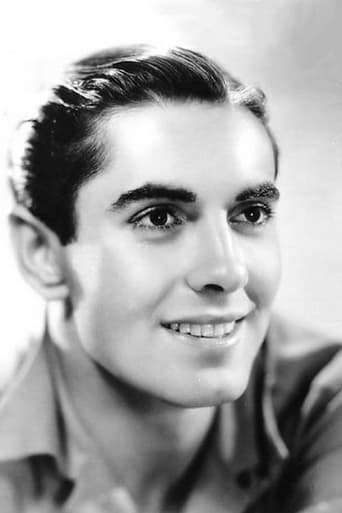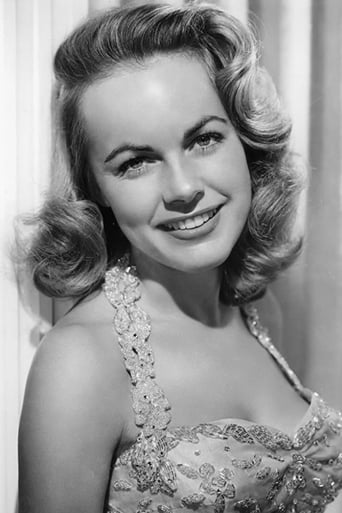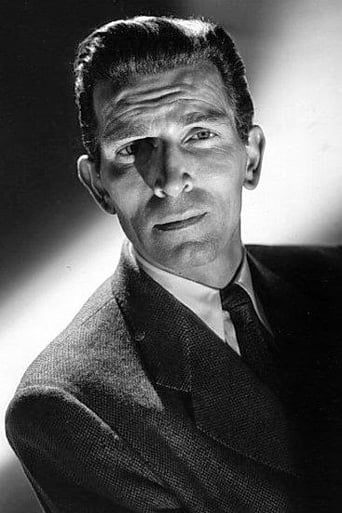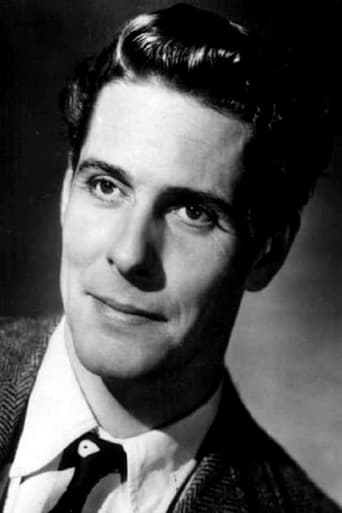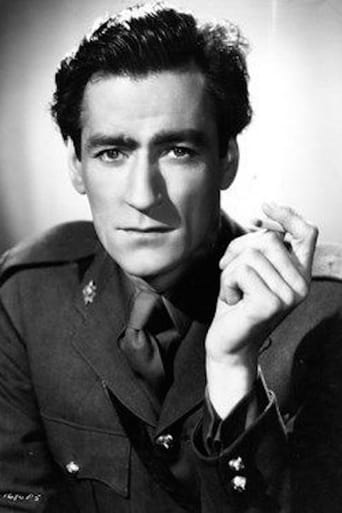Alicia
I love this movie so much
Stometer
Save your money for something good and enjoyable
Acensbart
Excellent but underrated film
Arianna Moses
Let me be very fair here, this is not the best movie in my opinion. But, this movie is fun, it has purpose and is very enjoyable to watch.
Robert J. Maxwell
Henry King, a long-time Hollywood craftsman, directed this tale of action, romance, intrigue, and racial prejudice among the British Army in India. The year is 1857, the one hundredth year of British occupation. The viewer may notice that in one scene, in the office of the commanding officer, Michael Rennie, two crossed flags are shown on the wall. One flag is the recognizable Union Jack. The other flag is a curious one. The union jack is tucked away in the upper left hand corner and the rest of the flag is taken up with alternating red and white stripes. That's the flag of the Honorable British East India Company, the entity that actually governed the subcontinent. No messing about with excuses. Money was money and the company traded in dyes, indigo, tea, and opium. The stock was all owned by wealthy citizens.Where was I? These historical peregrinations confuse even me. Tyrone Power is Captain King, a Moslem half caste, assigned to Rennie's post. Rennie has a cute daughter with an upturned nose, Terry Moore, who practically throws herself at Power's feet. Most of the officers seem to dislike him. And Rennie tries to play fair but he's naturally upset when his beautiful daughter takes a shine to a Wog, I mean a native gentleman. This entire theme, which runs through the film from beginning to end, struck me at times as an allegory, a conflict that paralleled that of racism in America, a subject the producers were unwilling to touch in 1953. "They are ready to die for you, but they can't be invited to the officer's club," someone remarks.The direction is efficient enough. And Movie Flats, near Lone Pine, California, is a decent substitute for India. It always has been, since before "Gunga Din." Tyrone Power was fine in roles like this: stiff and distant and filled with principle. Only once or twice did he compromise this image, in "Nightmare Alley" for one. Terry Moore's role is similarly circumscribed. She was better in "Beneath the Twelve Mile Reef." Rennie is stalwart. The chief villain is Guy Rolfe, under ten pounds of black-face make up. He's a tall and commanding presence and when he's on the screen it's hard to look at anyone else. Bennie Herrmann's score is rather routine except for its hints at "Vertigo." The final action scene, shot as day-for-night, is slam bang but without any real distinction. The forbidden romance between the outcast newcomer and the CO's daughter is lifted from John Ford's "Fort Apache", where it was handled with irony and skill. Power's pulling a girl into some desert ruins to escape a sandstorm is lifted from "Suez", where poor Power had to go through the same routine. The film smacks of the 1950s, when natives were supposed to say lines like, "We have many roads to travel. We'll cast our shadows upon them together."I enjoyed it as a kid. It didn't seem so impressive now, except for the spiffy uniforms. You should see them. The band and some of the officers and men wear the kilt. Tightly tailored, and all colors -- red, blue, and a more serviceable tan, which the soldiers of the time called khaki, having borrowed the word from the native language into English. Two officers are seen in blouses of washed-out blue. It would be worth serving on the frontier just to appear in such sartorial splendor.
MartinHafer
I am not sure why so many Hollywood productions featured the Imperial British in a very favorable light--such as in "Gunga Din", "Lives of a Bengal Lancer", "The Four Feathers" and this film. You'd think, in light of our own Revolution, we'd be rooting for the natives!! It was THEIR land, after all. Regardless, the film is just one of a bazillion others in most regards--just not as interesting. The only major difference is that there's a subplot about Tyrone Power supposedly being a half-caste--part British and part Indian Muslim. But the writer really didn't do that much with it--just make Power a gung-ho Britain-loving officer. As a result, although it is a bit different, otherwise it's a very ordinary film. As for Power, he's rather limp and it's not among his better films.By the way, although this is a pretty fair film, it does have one of the dumber clichés in film and TV history. When Tyrone Power's character shows people a picture of his father in a locket, it's his exact image--as if fathers give birth to sons who look 100% like them!! I would have at least taken the picture with a fake nose or weird hairdo! Oh well, at least it wasn't an identical cousin! You know, it would have been great if the picture had been of Tyrone Power, Sr.---Tyrone's father who was a famous actor during the silent era.
lorenellroy
The story was previously filmed as The Black Watch ,after the famed British regiment of the same name,by none other than John Ford ,and is based on a once popular now long forgotten novel by Talbot Munday . In this 1953 version Tyrone Power plays Captain Alan King a mixed race Brish Officer in Imperial India in 1857.He leads a supply column of native troops ,the Khyber Rifles ,to the British base at Peshawar and they are attacked by Afridi tribesman under the command of his old childhood friend Karram Khan (Guy Rolfe).The attack is repelled and the column reaches Peshawar .There King falls in (reciprocated )love with the daughter of the base commander and in so doing incurs the enmity of a fellow officer Lieutenant Heath (John Justin)who also loves the young lady in question (Terry Moore).The revelation of his mixed race ancestry results in the girls father CommnaNder Maitland (Michael Rennie)to forbid the romance between King and his daughter .She is then kidnapped by Karrem Khan's forces and he sets out to rescue her by infiltrating his ranks .Henry King is a largely neglected and under-rated director who made some splendid movies and in this instance he conjured up s work that has energy,flair and drive in abundance .Power is perhaps a tad too old for the part but still gives a dashing and attractive performance and is well backed yo by the menacing Rolfe ,the austere and dignified Rennie and the always reliable Justin.Moore is suitably decorative without being any great shakes in the Thespic department. The script touches on without really exploring the bigotry angle and overall this is a well shot and decently acted slice of Imperial heroics.The politically correct will not like it -but since I view them as children who need to grow up I won't let their thin lipped moral rigidity deter me from enjoying the picture .Nor should you
blanche-2
Director Henry King and star Tyrone Power teamed up for their ninth film, almost 20 years after King helped Power shoot to stardom when he chose him as Jonathan in "Lloyds of London." Why do I think Power was somewhat less ebullient this time around. By 1953, he was surely in a mad rush to finish his contract with Fox, as he had already formed his own production company."King of the Khyber Rifles" gets the full major picture treatment, in CinemaScope, and it is a film filled with battles, adventure, panaromas, and a little romance thrown in. You can't have Tyrone Power in a movie without some of that! He plays a half-caste who is put in charge of the Khyber Rifles. Eventually, he is given the assignment of putting down a rebellion led by a childhood friend, Karram Khan, menacingly played by Guy Rolfe. Terry Moore plays the British daughter of the brigadier general (Michael Rennie) who falls in love with Power, and that's a forbidden love. In real life, when she first saw the actor, she was so staggered that she developed a facial tic. Power asked King if they could sit quietly and run lines before shooting the scene, which allowed her to calm down. She's fairly vapid in the role.The last part of the movie is very exciting and beautifully photographed. The film definitely hold's one's interest.Power looks great - handsome and tanned, as Lieutenant King, but it's really not much of a role. The romantic scenes are marvelous, and he does display a lot of physical prowess. He was unfortunately one of the huge stars of the golden era who did not do a lot of great pictures. Ironically, some of his films not highly thought of at the time have found appreciative audiences today, 47 years after his death. Too bad he's not here to see it.

